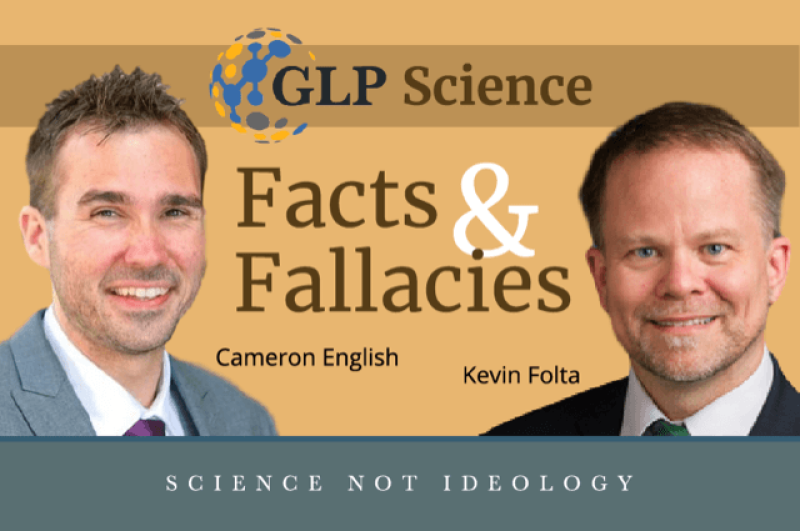Podcast:
Video
Join guest host Dr. Liza Dunn and GLP contributor Cameron English on episode 218 of Science Facts and Fallacies as they break down these latest news stories:
Do so-called “forever chemicals,” more accurately called per- and polyfluoroalkyl substances (PFAS), pose a serious health risk? The Environmental Working Group (EWG) claimed in a recent study that Americans are exposed to potentially harmful levels of at least one of these chemicals, Perfluorooctane sulfonic acid (PFOS), by eating freshwater fish. The problem? EWG’s study was fundamentally flawed. There is no evidence that eating any species of fish could jeopardize your health.
Your genes may exert a significant influence on h0w well your body responds to many pharmaceutical drugs. A new testing program at the University of California, San Francisco (UCSF) could help identify individuals at risk for these “gene-drug interactions” before they occur, helping physicians adjust the dose or even the drug they prescribe to a patient. If successful, the UCSF project could potentially cut health care costs and improve outcomes by minimizing adverse drug reactions.
Courtesy of social media, the public is consistently subject to outright falsehoods about the risks and benefits of pesticides. These chemicals certainly can be dangerous if misused. But when applied by farmers in accordance with EPA regulations, pesticides don’t threaten beneficial insects, nor do they poison our food.
Dr. Liza Dunn is a medical toxicologist and the medical affairs lead at Bayer Crop Science. Follow her on Twitter @DrLizaMD
Cameron J. English is the director of bio-sciences at the American Council on Science and Health. Visit his website and follow him on Twitter @camjenglish































